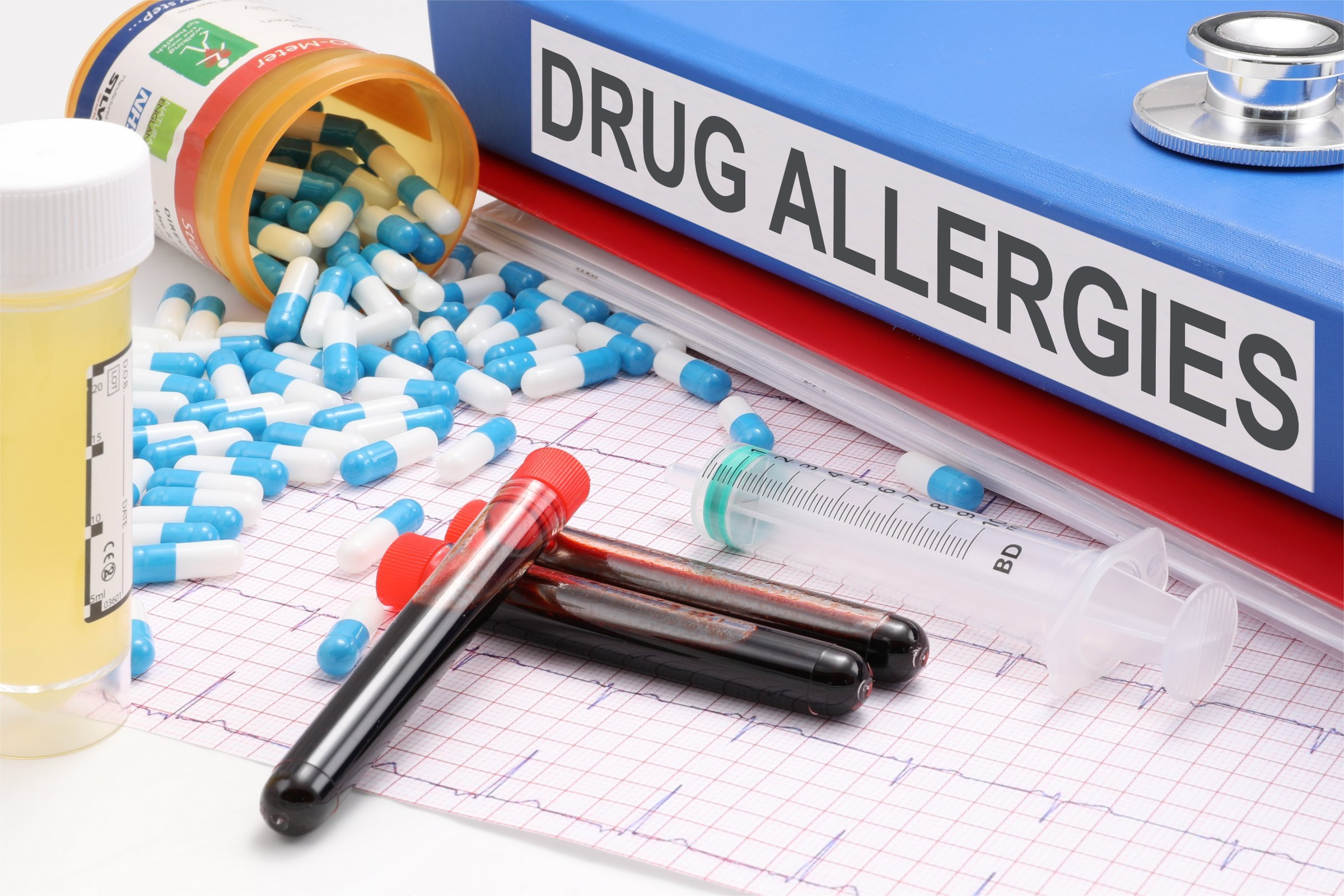Drug allergies are a result of the immune system responding abnormally to a medication. This reaction can lead to various symptoms, ranging from mild skin irritations to severe, life-threatening conditions. Allergic reactions require attention due to their potential impact on a person’s health. Here is more information about drug allergies and cross-reactions:
Cross-Reactivity Factors
Cross-reactivity occurs when someone allergic to one drug also reacts to another, typically within the same class of medications. Someone allergic to penicillin may have a similar response to another antibiotic. This occurs because the immune system identifies similar structures in both drugs and responds to them comparably.
Factors contributing to cross-reactivity include the chemical composition and structural similarities between different medications. When drugs share similar molecular features, sensitivity to one may extend to the others. This phenomenon underlines the need for awareness among individuals with known drug allergies.
Drug Allergy Symptoms
The symptoms of a drug allergy vary widely. Typical reactions include:
- Mild reactions such as skin rashes, hives, or itching.
- Moderate responses, including swelling of the face, lips, or throat.
- Severe reactions, such as difficulty breathing, a drop in blood pressure, or life-threatening anaphylaxis.
An allergic reaction doesn’t always occur the first time someone takes a medication. Sometimes, it happens after repeated exposure to the offending substance. Recognizing these patterns, along with tracking symptoms, provides valuable insights for medical professionals during the diagnosis process.
Diagnosis and Testing
Diagnosing drug allergies typically involves a thorough review of medical history and allergy testing. A detailed history helps identify the suspected drug causing the reaction, the speed at which symptoms appeared, and their severity. Skin tests or blood tests might be performed to confirm the connection.
Skin prick testing is used to identify immediate allergic reactions by introducing a small amount of the suspected drug to the skin’s surface. If necessary, blood tests help determine the presence of markers associated with an allergic response. These diagnostic tools combine clinical judgment and scientific analysis to better understand the allergy.
Drug Allergy Management
Managing a drug allergy primarily involves avoiding the problematic medication and related substances. Substituting the drug with an alternative that does not trigger an adverse reaction is a standard strategy. Pharmacists and healthcare providers work closely together to select safer treatment options for patients.
For individuals with severe allergies, carrying an epinephrine auto-injector offers an added layer of protection. This device delivers a rapid dose of medicine to halt extreme allergic reactions. Having emergency tools nearby enables prompt action when symptoms arise. Adopting precautions may help minimize risks in the future. Documenting drug allergies in medical records prevents accidental exposures. Discussing concerns with healthcare providers before starting new medications helps identify any potential risks.
Staying Safe with Drug Allergies
Living with a drug allergy requires awareness, preparation, and effective communication. Understanding the triggers and risks can lead to better health outcomes. Those affected should learn to advocate for themselves, while healthcare professionals play an active role in providing guidance and support. By recognizing symptoms, staying vigilant about cross-reactivity, and seeking appropriate medical advice, individuals with allergies reduce the likelihood of harmful experiences. Schedule an appointment with an allergy expert to determine if any drug allergies need to be addressed.
- Choosing the Right Plastic Surgeon for Your Cosmetic Procedure
- Understanding Different Types of Laser Treatments for Skin Rejuvenation
- Why a Family Dentist is Key for Maintaining Oral Health
- The Benefits of Regular Visits to a Wellness Spa
- Exploring the Emotional and Psychological Triggers of Eating Disorders


Leave a Reply